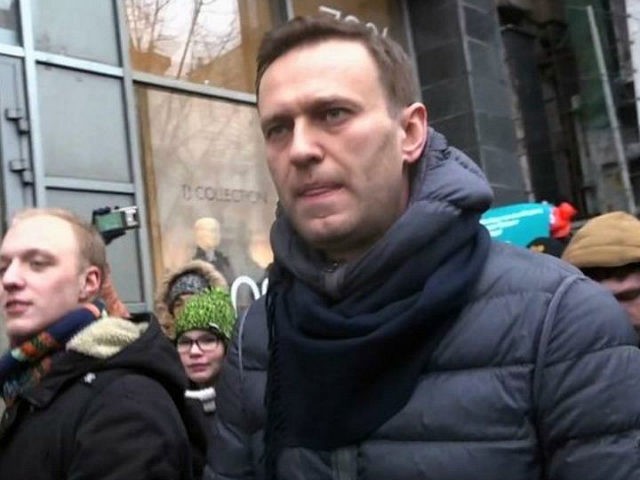Russian opposition leader Alexei Navalny, who became seriously ill aboard a flight from Siberia to Moscow last week, was transferred to a German hospital on Saturday at the request of his family, staff, and political allies who deeply distrust the Russian government.
Although doctors in Russia dismissed the idea that he was poisoned, German doctors on Monday said they did indeed find evidence of “intoxication by a substance from the group of cholinesterase inhibitors.” They did not identify the precise nature of the toxic substance.
Cholinesterase inhibitors are not normally found in tea, the beverage Navalny was drinking in mid-flight when he suddenly became violently ill and lapsed into a coma. They are found in some neurological treatments, as well as dangerous pesticides and chemical weapons. Novichok, the nerve gas used by suspected Russian agents in a botched effort to assassinate former spy Sergei Skripal and his daughter in the United Kingdom in March 2018, uses cholinesterase inhibitors.
“It is official now: Alexei Navalny has been poisoned,” his spokeswoman Kira Yarmysh, who accompanied him on the fateful plane ride, tweeted on Monday.
“His state of health is serious, but there is currently no acute danger to his life,” the Charite hospital in Berlin said, reporting that he remains in a medically-induced coma in intensive care. The hospital warned that the atropine administered to Navalny as an antidote could have negative effects on his overall health and nervous system.
The German government, however, said it was “fairly likely” that Navalny was deliberately poisoned and said, “protection is necessary.”
“The suspicion is not that Mr. Navalny poisoned himself but that someone poisoned Mr. Navalny. And there are unfortunately one or two examples of such poisonings in recent Russian history,” said a spokesman for German Chancellor Angela Merkel.
“In light of the prominent role played by Mr. Navalny in the political opposition in Russia, the authorities there are now urgently called upon to investigate this crime to the last detail — and do so in full transparency. Those responsible must be identified and held accountable,” Merkel said in a joint statement with her foreign minister, Heiko Mass.
The Washington Post reported on Monday that Navalny is under the protection of the German Federal Criminal Police Office, which also provides security details for Merkel and other German officials, but not usually to private citizens.
The doctors who worked on Navalny at the hospital in Omsk, Siberia, said they found no evidence of poisoning, although they admitted the possibility could not be ruled out completely. They theorized Navalny’s condition was brought on by a sudden drop in his blood sugar levels, a diagnosis Navalny’s friends and family rejected.
The Russian doctors also said Navalny’s condition was too delicate for him to be evacuated to Germany, but a team of German doctors flown to Siberia by a non-governmental organization examined Navalny and pronounced him safe to travel.

COMMENTS
Please let us know if you're having issues with commenting.